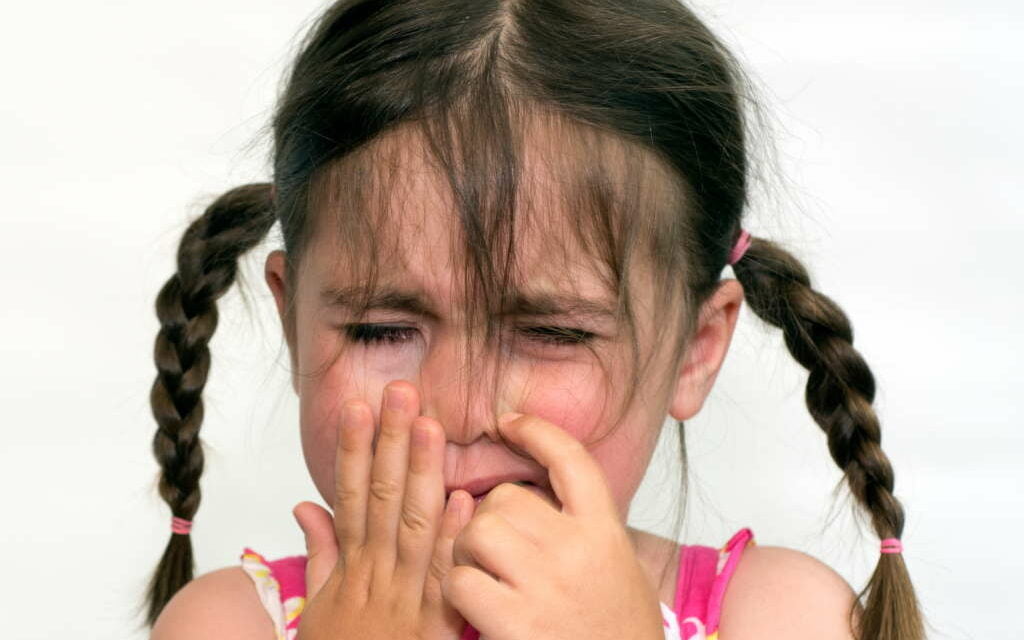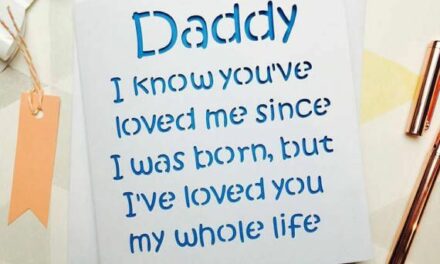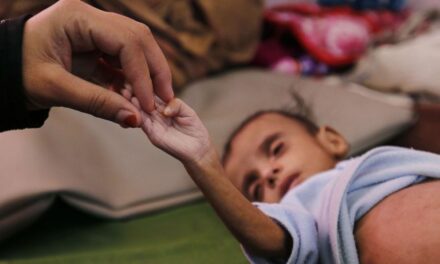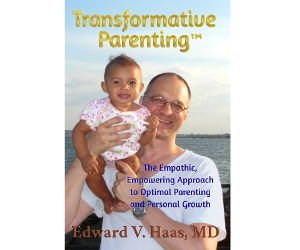Punishment has been used to mold children’s behavior for thousands of years: It is time to bring that era to an end.
Discussions about punishing children create strong feelings on both sides. Those who feel strongly that punishment is a valid, useful tool in shaping children’s behavior can point to several factors supporting their belief: 1. Punishment works. and 2. Punishment is commonly used. Generally speaking, they can also point to the evidence of their own experience of being punished as a child, and make the argument that “I turned out fine”, and so punishment is alright, or at least “not that bad”.
Beginning by carefully defining punishment, then setting out some general principles of psychology and parenting, I will explain why punishment is a harmful, though unfortunately effective way to mold the behavior of children. And why punishment of a child is almost always inappropriate, counterproductive, and wrong.
With this understanding, I hope that parents who previously felt using punishment was acceptable, or even good, will stop using it to control their children’s behavior.
Punishment Defined
Punishment involves inflicting pain on someone; either physical pain, psychological pain, or both. Imprisonment, torture, taking property, shunning, starving, and insulting: All these things, in all their gradations from mild to severe, can be examples of punishment.
However, we have to intentionally inflict the pain. In other words, if we harm someone by accident, we don’t consider that punishment.
We also exclude cases in which someone is harmed only because the person inflicting pain enjoys it. Someone who enjoys hurting people and animals who have done them no harm is not “punishing” them. They are simply using them for self-gratification. “Torture” might be a better word for this case.
Finally, we exclude cases where people invite having pain inflicted on them, as with masochists in dominant-submissive role play.
So, when there is harm, an intent to harm, and a justification other than self-gratification we can call the harm “punishment”.
Justifications for Punishment
In some cases punishment is used to “balance” a wrong. A person has harmed someone, and they are then harmed as a way to “even things out”. In the Biblical Old Testament, this rationale is called “an eye for an eye”. If a doctor is guilty of medical malpractice, their license to practice medicine might be taken from them. If a child hits another child, the child might hit back to defend themselves. Self-defence could be a justification for punishment.
In other cases, a person has perhaps harmed no one in particular, but has disobeyed a social rule, presumably harming the social structure in some way. For example, one might pay a fine, or spend time in jail, for possessing marijuana, drinking alcohol in public, or jaywalking. In the not so distant past, punishment was given to those who used the wrong bathroom, or sat in the wrong part of the bus. In some countries today, people can be stoned, whipped, or even killed for not wearing appropriate clothing or being appropriately respectful of traditions or authority.
In the above cases, and in others, a person has done something you do not want them to repeat, and the intent of punishment is to keep them from repeating the action. This is called “negative reinforcement” in psychological parlance. It is the opposite of “positive reinforcement” such as praise, or giving a treat when you want to encourage a behavior.
Examples of negative-reinforcement are withholding meals from a child who eats a piece of candy they are not supposed to have, or yelling at them for running ahead of us, or slapping their hand if they reach for a forbidden object. Sometimes dogs are trained not to defecate in the house by “rubbing their nose in it”.
We are trying to force the child or animal to associate or remember that something painful occurs when they do the behavior we do not like, hoping this memory will keep them from doing it again in the future.
Sometimes, parents will try to use punishment to encourage a behavior. Say a child did not do their homework, and the parent punishes them by hitting or yelling at them. Punishment can be very effective in training people and animals not to do certain behaviors. It is generally less effective when trying to encourage someone to do something, because it associates pain with the desired behavior.
There are so many problems and unintended consequences from the use of punishment that in almost all cases other ways of training and teaching are preferred.
In order to understand why, we need to appreciate a few things about the perspective of a child, and the way human beings learn.
I consider the following statements to be mostly self-evident, meaning you should be able to reflect on them and accept them as true based on your own experience. I develop them more carefully in my book, Transformative Parenting: The Empathic, Empowering Approach to Optimal Parenting and Personal Growth, which you are encouraged to consult for a deeper understanding:
Children are born into the world helpless. They have only the most basic abilities to move, eat, and communicate their desires. Because of that helplessness, they have an underlying anxiety or fear of being left alone that can only be countered by the presence of an attentive, understanding, giving adult; who helps them feel secure. The example of a crying baby, who quiets when held, is ample evidence.
Children who feel secure are more likely to feel secure as adults. Children who do not feel secure are more likely to not feel secure as adults.
As they grow, a healthy, secure child develops curiosity: the desire to explore, learn about, and test the limits of their power over the world around them. If that curiosity and sense of empowerment is encouraged, they begin to feel confident, and later become confident adults; even when placed in new situations.
Security is the most basic need of children (and adults). Curiosity and the need to feel powerful are also important, but come second to security. These are primal, instinctual parts of human nature. Once these are satisfied, empathy and compassion can develop, but only if they are nurtured by having adults around them who are role models of empathy and compassion. Empathy and compassion rarely develop in the absence of caring and compassionate adult caregivers.
We learn from what we observe, and from what others tell us. While actions speak louder than words, the words of adults, and especially parents, make a huge impact on children; particularly in early life as their ideas about the world and themselves are taking shape.
All of us, children and adults included, are always doing the best we can. That is, we are using our accumulated knowledge of the world to make judgments about our next actions, and hoping that those actions will bring us more security, knowledge, or pleasure.
Parents should strive to help their child become a confident, secure, and compassionate adult.
With these precepts, we can understand both why punishment is so effective in suppressing unwanted behavior, AND why it is so harmful.
Effectiveness of Punishment
Punishment of a child by a parent is especially effective because of the additional, implied threat, of abandonment.
Early in a child’s life they become aware that their survival is dependent on their parent. Fear of losing a parent triggers an extremely painful awareness: of helplessness, inability to survive, and fear of the potentially threatening unknown. The anger and disapproval of a parent triggers powerful and primal fears that enhance the effectiveness of parental punishment far beyond that of simple negative-reinforcement.
Loss of Security
The downside, however, is that activating these fears causes a loss of security and trust. A child can no longer be confident their parent will stay with them or protect them. As a result, they change their behavior in order to gain back their parent’s protection, having learned their parent will only protect them if they do what their parent wants them to.
Development of the False Self
If punishment, or even the threat of punishment (which triggers the same fears) is used, the child adapts psychologically by limiting their thoughts and behaviors to those that please their parent, even when those limitations interfere with their legitimate needs and desires, even their appropriate growth and development.
These imposed rules and limitations make up what the famous pediatrician and psychoanalyst Donald Winnicott called the “false self”. It is the sum of our unconscious, limiting beliefs; which inhibit us from expressing ourselves freely in thought or action. It finds expression in Freud’s “superego”; creating negative thoughts about ourselves and others whenever we are exposed to something we have been taught is “wrong”.
It is important to mention again that punishment does not have to be severe to have this powerful effect. Even the threat of punishment, or just withholding affection or attention from a child when they ask for it, is enough to trigger fears of abandonment, the loss of security and well-being, and the development of a limiting false self.
In later life, the result is an anxiety or discomfort in new situations, or around new people who don’t share our beliefs. We seek our parent’s (or surrogate parents, like bosses or authority figures) approval before undertaking new challenges, if we consider taking on new challenges at all.
An example of the destructiveness of this often well-intentioned process is an acquaintance of mine; who went through the long, arduous process of studying extremely hard all her life, taking the correct major in college, going to medical school, finishing residency, and joining a practice, to finally become a doctor. Unfortunately, somewhere along the way she realized she really did not want to be a doctor. She had followed the path laid out for her by her parents in order to please them, but disregarding her own wishes. Now trapped, by her parent’s approval, and huge student loan debt; she feels forced to spend her life doing something she doesn’t enjoy.
People who have a strong false self find themselves constantly struggling with conflicting thoughts and desires. They have a harsh superego that tells them they are not worthy; or that something is wrong with them. They may have a constant inner sense of shame. These thoughts arise because their understanding of what they should be (created by their false self) is in conflict with their authentic needs and feelings.
Punishing Children’s Mistakes
We all do the best we can. Nonetheless we all make mistakes, particularly when we are trying new things. But even when we are doing things that are normally easy for us, mistakes happen. Children are in a state of nearly continuous exposure to new things, and exploration of boundaries. Their bodies and minds are undergoing rapid development, and their attention spans are short. It is inevitable that children make frequent mistakes as these developmental processes are occurring.
For a child not to make frequent mistakes, they cannot try new things. They must suppress their natural curiosity and desire for discovery and exploration. Their false self then becomes highly developed and restrictive. They may be very competent in certain areas where they have been allowed or encouraged to develop, however they are unlikely to feel confident or empowered in other areas, and true empathy and compassion are unlikely to develop. This is the end result for children whose parents punish them for mistakes.
Punishing Normal Behavior
Similar to punishing mistakes (which are normal), punishing normal and developmentally appropriate behaviors such as exploration, making messes, attempting to assert themselves, and testing limits and boundaries will suppress children’s individual development, inhibit the discovery of natural strengths and interests, and strengthen the limiting false self.
Too Frequent Punishment
As we have seen, punishing mistakes and punishing normal behaviors leads to the development of a false self; which restricts the child’s (and later adult’s) behaviors, and leads to mental and emotional conflicts and insecurities. While unfortunate, the formation of this false self allows the child to cope with an environment that is in conflict with their needs and desires. However, in some cases there are still further consequences:
Students of psychology are familiar with the concept of “learned helplessness”. In the classic example, a lab rat, or a dog, is placed in a cage with an electrified floor. The doors are locked and shocks are applied to the floor. The animal tries to escape but the are unable to. At some point they give up trying and lay on the floor despite the shocks. The door might then be opened, but is shut again when the animal tries to escape. Eventually the animal just sits through the shocks, even when the door to the cage is open and they presumably could escape. This is learned helplessness. They have learned that they are helpless to escape being harmed, and so they quit trying.
Learned helplessness is also a consequence of too-frequent punishment. The child comes to the realization there is nothing they can do to escape punishment (or torture) by a parent or adult, and so they quit trying.
For some children learned helplessness will manifest as depression, apathy, hopelessness, self-harm, or suicidality.
In other children, learned helplessness manifests in uncontrollable rage, violence, or extreme risk-taking such as running away, sexual acting out, or engaging in criminal behavior.
In both cases, children have learned that parents and authority figures are enemies, or are incapable understanding or helping them. The child may believe they, their parents, or both, are indelibly flawed; beyond redemption. As a result, parents’ actions, desires, and advice are disregarded, no matter how well-intentioned.
At this point, punishment becomes less and less effective in shaping behavior, and serves more and more to strengthen underlying feelings of helplessness or rage.
Anger and Punishment
When an adult punishes a child, the trigger is often the parent’s felt anger, and not the breaking of a rule by the child. Sometimes there is a feeling of embarrassment first, then anger. In other cases, anger is triggered immediately at the “disobedient” child.
The problem with using anger as a trigger for punishment is that anger is capricious. That is, anger can arise seemingly out of nowhere. If a parent or adult uses anger as a cue for punishing a child, they will frequently do so inappropriately. Either the child has not done anything that a calm parent would punish in the first place, or the anger leads to punishment which is too harsh.
Punishment is often preceded by a slight or upset to the parent having nothing to do with the child. Mom might be angry with Dad about something; and some small slight, sometimes imagined, will direct that anger toward the child. The resulting violence toward the child cannot properly be called “punishment”, because the child may have done nothing wrong. It cannot be called “torture” either, as the violence done may not even be consciously directed towards the child. The end result however, is verification for the child that their parent does not understand them, and they are not safe with their parent.
Perpetuating Violence
Violence is causing suffering, pain, or discomfort in another person. Note that punishment involves causing suffering, pain, or discomfort; and so is violence.
We only inflict pain on someone when we do not have an empathic connection to them. Otherwise we would feel the pain ourselves. Anger creates a break in empathic connection, which is another reason anger is so dangerous in connection with punishment.
When we punish our child, we are being role models. We are teaching them it is appropriate to use violence to force those less powerful than us to do, or not do, what we want. We are also modeling a lack of compassion or empathy, and hence disrupting its development.
We discussed earlier how punishment is detrimental to a child’s sense of security, confidence, and empowerment, and builds walls which keep their true hopes and dreams from finding expression. Here we see one of the costs to society as a whole.
While aggression is an inherent part of human nature, the teaching of violence by parents normalizes it, and vastly increases its use.
Male children grow into men, and as their physical strength surpasses women and children, they remember from their childhood experience how to get what they want – violence. They have difficulty feeling empathy or compassion for those weaker or less privileged than them. Why? Because a lack of empathy in their childhood caused it never to develop.
Similarly, girls who are punished grow into women, and they use emotional and physical violence with children, family, friends, or servants, to have their desires met. It feels natural, empowering, even “correct”, because it was part of their experience, and therefore “normal”.
The use of violence against others to get what we want becomes normalized though parental punishment, no matter what our lip-service to a kinder, gentler society may be, and the use of violence escalates – in ourselves, and in society at large.
After reading and thinking about punishment, I hope you will consider the following recommendations:
#1. Avoid using punishment if at all possible. Punishment, even if “appropriate” in a given circumstance, teaches children to use violence as a way to get what they want from others. It teaches lack of empathy and compassion. It also teaches them their parent does not understand them, and that their parent only loves them if they do what their parent wants them to.
#2. Never punish your child (or anyone) when you are angry. Anger vastly increases the danger of inappropriate, out of proportion, or misdirected violence. If you are angry or “cold” (a form of suppressed anger) emotionally, do not punish your child. Calm down first, remember that you love your child deeply and don’t want to unnecessarily hurt them, then reevaluate the situation.
#3. Never punish a child the first (or second, or third) time they do something “wrong”. It takes time for anyone to learn, and we all make mistakes. Children naturally make more mistakes than adults, as they are learning vastly more and their bodies and minds are developing.
#4. Learn about child development. Buy a book about it and keep in on the shelf as a reference. Learn what is normal behavior for children at different ages so you don’t have unrealistic expectations. Even then, remember that children develop differently. Talk to your pediatrician if you have concerns. Try not to let your neighbors’ opinions worry you too much.
#5. Instead of reacting with punishment, calmly evaluate the situation first. Is your child actually doing something that needs to be corrected? Often, when we take time to understand why, we realize our child was acting appropriately based on their perspective. If you need to correct an action, use calm explanation and redirection instead. Over and over. This method may not be as immediately effective as punishment, but in the long run it works, because children naturally want to please their parents, and it keeps intact the child’s understanding that their parent supports them unconditionally, which in turn leads to the development of compassion, self-esteem and confidence.
The use of punishment to shape behavior is unfortunately pervasive in our world, despite its broadly negative consequences for children, the parent-child relationship, and society as a whole. Please share this information with others. Do your part to make the world safer for children; and a kinder, gentler, happier place for all of us.
Thank you,
Edward V. Haas, MD
P.S. I would love to hear your thoughts about punishment. If I have not persuaded you, I hope you will share why in the comments. All feedback is helpful, and appreciated.
Update: Nice to see mainstream support for ending punishment. See:
https://www.cnn.com/2018/11/06/opinions/spanking-american-academy-of-pediatrics-gershoff/index.html








Very well written Dr.Ed!
I can very well relate it to the parents of Autistic kids who face a lot of different behaviors and challenges with their kids on a daily basis.
They are emotionally disturbed experiencing
Humiliation when the kids can not adhere to the basic rules of the society.
Embarrassment when they become the hot topics of discussion in public places.
Anxiety when the kids are left far far behind their peers in terms of social cognitive and intellectual development.
fear of not being able to cope of with the highly demanding educational system and society
Insecurity about the kids future.
Depression when they find minimal progress in-spite of the abundance effort they put to progress the child.
and finally surrender to the one they think can give a quick and most effective fix to their problems-none other than ” Punishment”.
They seem to forget the long lasting effect and the dangerous risks it could impose on kids
I’m a new, confused father. I am blessed to have some guidance along the way though as my partner has done this before, with an older child and had a lot of training as both a child educator and medical professional.
The act of punishing a child is so built in that it can happen automatically and unknowingly. Hitting a child seems outright wrong to me, but I’m still caught off-guard. Example!
We have an 11 month old. One day, on a trip to Costco, my partner was carrying him on her back in a strap-on carrier. Although she ties her hair up in a bun when she carries him, he’s now old enough to reach the bun and tug on her hair. It’s painful.
We’ve checking out and now hauling all of our stuff back to the car, relieved that this quarterly errand is almost behind us. At this moment the baby tugs on her hair and she yelps in pain. “Stop!”, she commands the baby. He does not. He doesn’t even know what that means. He’s 11 months old.
It happens again. She repeats “Stop! That hurts!”. He keeps doing it, oblivious. As he reaches to do it again, without thinking, automatically, I reach over flick his hand with my fingers,inflicting pain.
He looks at me confused. He tries again and I flick his hand again. He quits trying to pull my partner’s hair. I go back to focusing on hauling the goods to the car.
My partner noticed me reach over to him out of the corner of her eye and asked me if I hit him. I said i just flicked his wrist.
She full stop told me this was the wrong way to handle that. This has taught him that you solve problems by inflicting pain, at an especially crucial moment, when he can neither understand what’s happening nor express himself. Repeating these lessons teaches children to resort to inflicting pain instead of communicating; they learn that from us.
At first I was a bit taken aback, it seemed like such a small thing to me, but to my little impressionable infant it no doubt left a mental mark, and if I continued to correct his behavior like this I could see it contributing to a pattern of harmful behaviors that would affect him and the people around him for the rest of his life. It’s actually a slippery slope for me as a parent as well; if my partner hadn’t said anything would I have learned that hitting my kid was the right way to solve parenting problems?
Since it was so effective would I have experimented with new kinds of punishment? Especially when we encounter behaviors that are a lot more challenging to control than hair pulling?
Punishment is scary stuff. It’s certainly a part of how I was raised, and how everyone around me was raised, and I know many people who turned out okay despite the practice, but… I can see the complete difference in how my partner’s older child was raised, without punishment of any kind (but rather with constructive and engaging communication), and it’s another world entirely. I can easily say I want no punishment in my parenting future.
Putting it into practice, overcoming a lifetime of your own reinforced habits, passed down to you through generations, is of course the hard part. I’m committed to trying.
Thank you for sharing your story Michael. I agree that the urge to punishment is very difficult to break, however I’m not sure that what you did amounts to punishment, at least as I would define it. As I understand it, you flicked your child’s wrist AS he was grabbing his sister’s hair, not afterwards, and that you used a very small amount of pain. This would seem to me to be more of a pure negative-reinforcement process as opposed to punishment done after the fact, often in anger, which is the primary focus of my paper. It may have been better to simply remove his hand from her hair over and over again until he quit in frustration, but the way you did it does not strike me as abusive. You are clearly a caring father. Thank you for being a reader and commenting.
Parents with special needs often face embarrassment and shame around their children’s behavior. In the midst of those emotions, it can be difficult to suppress the common reaction of anger, and then not direct that anger to the easiest target, namely their child.
Hopefully all parents can learn to understand they do not have to feel embarrassed or ashamed of their child’s actions, or if they do, they need not feel angry, or if they feel angry, to realize that taking their anger out on their child is actually counterproductive to helping their child develop more normally.
Thank you very much for your comment Shilpa!